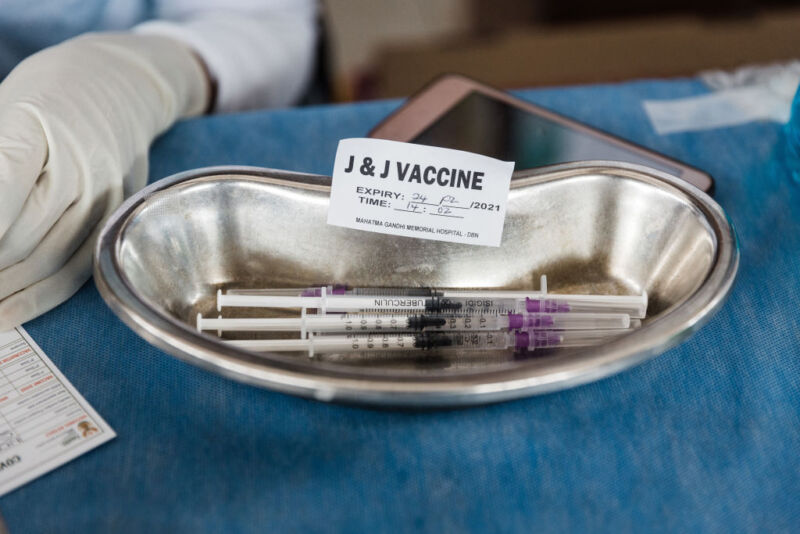
Based on various measures, the Johnson & Johnson COVID-19 vaccine has appeared to be less effective than those based on mRNA technology. It has also been associated with some rare blood clotting complications that recently caused the CDC to revise its endorsement of the vaccine. Still, the vaccine is easy to produce, transport, and store, and there have been some indications that it provides longer-lasting protection than some alternatives. And there have also been indications that at least some of the efficacy differences came from its use as a single-dose vaccine.
With all vaccines now expected to include a booster significantly after the initial vaccine dose, we're starting to get a sense of how the J&J vaccine performs in more than one dose. Early results indicated that a J&J vaccine boosted by an mRNA dose provides a big increase in protective antibodies. But a J&J/J&J combination didn't look to be as effective.
Recent research preprints, however, may indicate that the protection continues to increase over time, engages non-antibody-producing immune cells, and provides some protection against the omicron variant.
Change over time
One of the manuscripts tracks a very large clinical trial that involved giving South African healthcare workers a second dose of the J&J vaccine six to nine months after their first dose. The timing of the trial meant that many of the participants were boosted shortly before the rise of omicron infections in that country.
The team tracked test results in the participants, and adjusted the data for complicating factors like age and known risk factors. Based on the need for hospitalization, the booster was obviously effective, and its efficacy increased over time. In the two weeks after the boost, the efficacy in preventing hospitalization was 63 percent. After the two week mark, however, this rose to 84 percent, and stayed there for at least two months afterwards.
This increase in efficacy occurred even as omicron was displacing delta as the primary source of new infections in South Africa. So this appears to be consistent with other results that indicate boosters help provide a much higher degree of protection than initial vaccination doses alone.
This protection comes despite the fact that the antibody levels produced by the J&J vaccine are lower than those seen with mRNA vaccinations. As a result, the South African researchers suggest that their results are "indicative that protection against severe disease may be due to cellular immunity and immune memory rather than neutralizing antibodies." Which brings us to the second preprint, which looked at the cellular immunity provided by the immune system's T cells.
To a T
This is a much smaller study, involving only 20 participants from the Boston area. But it looks at the immune response in far greater detail. It also looks at people who received either one or two doses, but because of the small study population, there's not enough people in either group to do a separate analysis of these populations.
In any case, antibodies display a moderate but prolonged response, reaching their peak at roughly two months post vaccination. Their levels at day 240 were still roughly double the levels seen at one month after vaccination. Neutralization against the delta variant was also fairly robust, down by less than a third compared to the response against early strains.
But the striking results came when the researchers looked at the T cells that help recognize and kill infected cells. In these individuals, there was essentially no difference at any time point examined. Other types of T cells did decline somewhat, but also remain robust out to eight months. Again, these are preliminary results from a small study, but it does seem consistent with other reports of long lasting immunity produced by the J&J vaccine.
We're still a long way off from fully understanding the interaction of vaccine based immunity and the various variants now in circulation, as well as the differences that might arise from the different methods of developing immunity. But a lot of people, both in the US and overseas, have now received the J&J vaccine, and understanding whether they face heightened risks over time will be crucial to managing the pandemic going forward.
Article From & Read More ( New data on using J&J vaccine to boost itself - Ars Technica )https://ift.tt/32GuUYx
Business
Bagikan Berita Ini














0 Response to "New data on using J&J vaccine to boost itself - Ars Technica"
Post a Comment